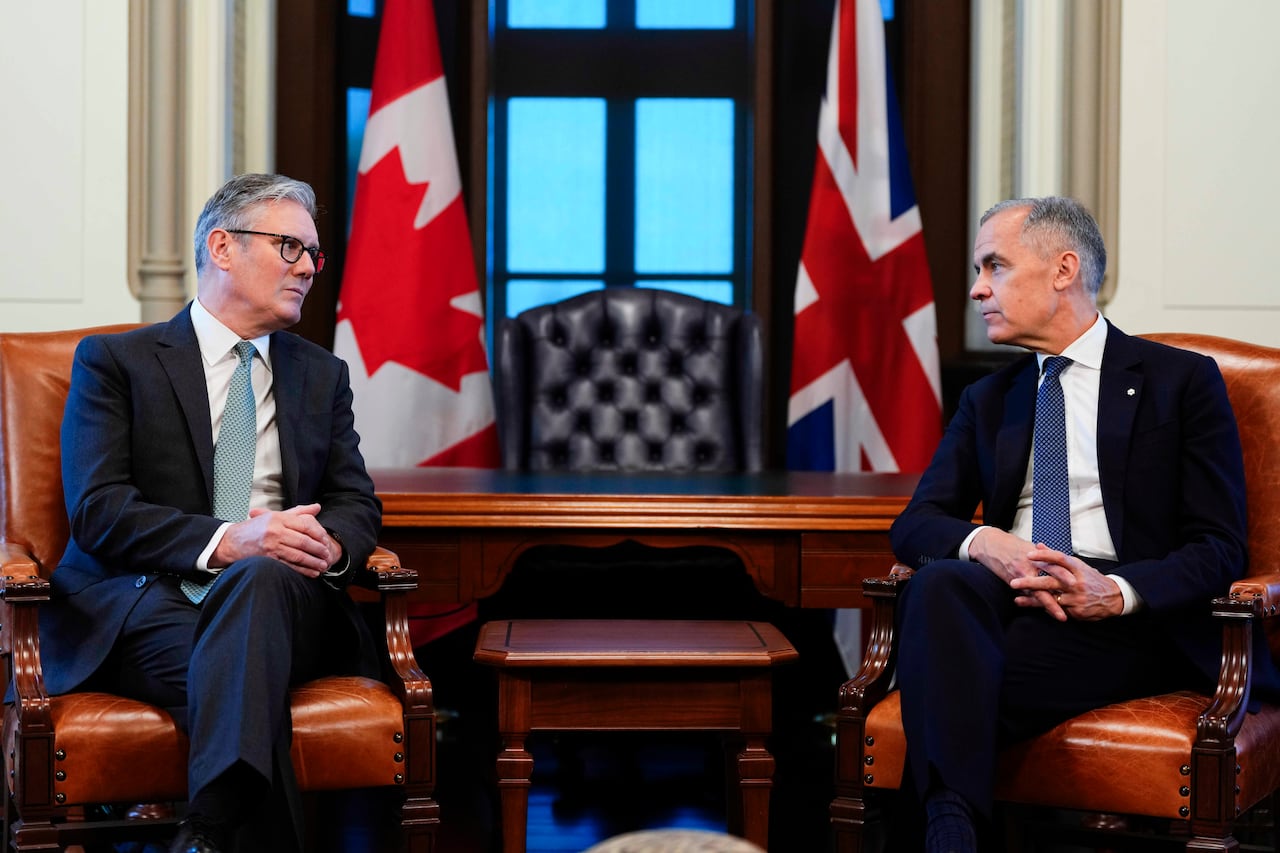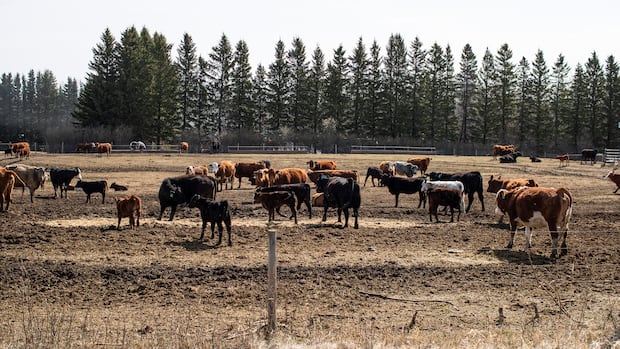Canada’s ranchers are calling on the federal government to terminate the trade agreement it’s had in place with the United Kingdom since Brexit, part of a renewed push to persuade the British government to stop blocking Canadian meat exports and get back to the bargaining table.
“We’re calling on all parliamentarians to stand up for Canadian beef producers,” said Tyler Fulton, the president of the Canadian Cattle Association (CCA), during a Thursday morning news conference on Parliament Hill.
“In these uncertain geopolitical times, we need every opportunity to diversify our markets,” he added. “The U.K. has not made any effort to address the non-tariff barriers that are keeping Canadian beef out of the U.K. market,” he added.
While his producers’ exports to the U.K. were effectively zero over the last two years, British exports to Canada have increased in a way many ranchers feel is fundamentally unfair.
According to figures provided by the CCA, the value of British beef imports into Canada rose from $16.6 million in 2023 to $42.5 million in 2024, a 156 per cent year-over-year increase.
From January to August 2025, imports totalled $32.2 million, up 19 per cent from the same period in 2024.
When the U.K. left the European Union in 2020, its trade policy no longer fell under European jurisdiction. Until a bespoke new bilateral agreement could be negotiated with the United Kingdom alone, Canada agreed, at least at first, to continue offering the British the preferential terms of trade it enjoyed under the Canada-Europe Comprehensive and Economic Trade Agreement (CETA.)
This “continuity” deal between Canada and the U.K., however, maintained not just its beneficial tariff cuts but also CETA’s trade irritants, including a longstanding dispute over what food safety standards should apply when butchering Canadian cattle for consumers on the other side of the Atlantic.
After years of cross-border integration with the U.S., Canada’s regulations are in line with American slaughterhouses.
Different, but — Canadian ranchers argue — equivalent safety regulations, first in the EU and now also in the U.K., have effectively blocked Canadian beef exports. That’s despite the fact Canada specifically negotiated and made concessions so Canadian livestock producers could sell their meat in these markets.
Fulton said the U.K. is violating the terms of this continuity agreement by continuing to restrict Canadian beef under the guise of these regulatory differences.
“This agreement was always meant to be temporary,” Fulton said, noting it was the U.K. government’s decision in 2024 to walk away from the bilateral negotiating table in the run-up to what became a bruising election defeat for the British Conservative Party.
Talks towards a permanent bilateral trade agreement haven’t restarted under the new Keir Starmer government. The CCA wants a resumption to properly address its market access issues once and for all.
Scientific and technical committees formed to reconcile the competing regulations have been unable to make meaningful progress.
Thursday’s call to arms by Canadian ranchers followed the introduction earlier this week of legislation to implement the U.K.’s accession to the Comprehensive and Progressive Trans-Pacific Partnership (CPTPP), a Pacific Rim trade deal the British government sought to join in its hunt for new trading partners in Brexit’s aftermath.
Seven member countries of the CPTPP have ratified the U.K.’s entry, which took effect last December. The Canadian government held off for months without ever stating an official reason for its delay.
After Prime Minister Mark Carney met with Starmer in Ottawa in June, he announced that Canada would introduce legislation this fall. While in Canada it’s the federal cabinet that ratifies trade treaties, there is a legislative process to consult with Parliament and pass a bill making the legal or regulatory changes required for the treaty to apply to Canada-U.K. trade.
 Prime Minister of Canada Mark Carney, right, meets with Prime Minister of the United Kingdom Keir Starmer in his office on Parliament Hill in Ottawa on Sunday, June 15, 2025. (Justin Tang/The Canadian Press)’Stand up for Canadian beef producers’
Prime Minister of Canada Mark Carney, right, meets with Prime Minister of the United Kingdom Keir Starmer in his office on Parliament Hill in Ottawa on Sunday, June 15, 2025. (Justin Tang/The Canadian Press)’Stand up for Canadian beef producers’
Using these different meat hygiene standards as a trade barrier is against World Trade Organization rules, CCA president Fulton pointed out, and also violates the “spirit” of the CPTPP.
The rancher said Canadian safety standards have been recognized as “world class.”
“We need our government to stand up for Canadian beef producers,” Fulton said. “The pathway for economic growth and trade diversification is rules-based trade.”
Once the U.K.’s CPTPP membership is ratified, Canadian livestock producers could enjoy even more access to the British consumer market than the current continuity agreement provides — but only if these regulatory barriers are resolved. In return, British products, most notably more cheese, could also find more tariff-free space on Canadian grocery shelves.
A readout from International Trade Minister Maninder Sidhu’s office said he spoke with his British counterpart Chris Bryant on Wednesday. The pair discussed their joint economic and trade working group, it said, and agreed to continue their co-operation to strengthen bilateral trade and investment.
It was silent, however, on whether the bilateral trade negotiations between the two countries will resume any time soon.
Notwithstanding calls from Canadian ranchers to support their industry’s fight, Canada’s Opposition Conservatives have typically been strong supporters of deepening trade ties with the U.K.
The new bill to ratify the U.K. accession to the CPTPP has yet to be called for debate in the House of Commons.
In a speech Wednesday evening, Carney laid out ambitions for his government to diversify Canada’s trade and double exports to non-U.S. markets over the next decade.

